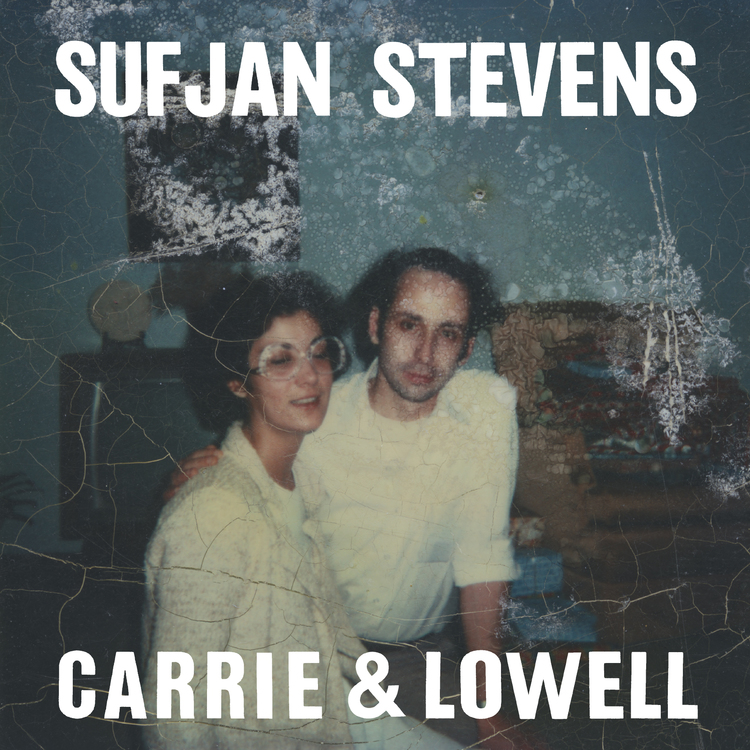Sufjan Stevens’ new album, Carrie & Lowell, has been out for over a month now, but I’ve only had the chance to listen to it for the past week. I had pre-ordered it a while back and mistakenly assumed that it would automatically download to my account and so I spent a few weeks wondering when it would do so. Once I finally did the google I realized that I had to take action myself. Nay bother. But in case you’re wondering, this is why I’m a bit late to the party.
I don’t want to try and offer a full-scale review of the album. Because of the extremely personal nature of the album, it is difficult to make sense of many of the very specific references that Sufjan makes throughout (if you don’t know about the content or origins of the album, check out this interview). Rather than trying to make sense of it all, I found myself simply trying to follow the emotion of the album. Perhaps the most profound experience I had while reflecting on the lyrics of the album was during my first listen of “Eugene.” At the outset this song seemed a bit syrupy and out of place in light of the initial melancholy. But the effect of the lighthearted tune and the sunny references to lemon trees and lemon yogurt set me up for the very pointed and gut-wrenching conclusion, “Now I’m drunk and afraid, wishing the world would go away. What’s the point of singing songs, if they’ll never even hear you?” At that moment during my first listen I knew this album was something special. And then the album carried me forward to one of the very best Sufjan tracks in his entire discography, “Fourth of July.” Wow. I’d love to say more about this depressingly beautiful album, but for this post I just want to offer one brief reflection.
From a musical standpoint, I do enjoy how stripped down the album is. Although, I did actually love The Age of Adz (and I was fortunate enough to see Sufjan perform the album in L.A.). But during the first few times I listened to Carrie & Lowell I kept noticing something that slightly bugged me. If you listen closely, there’s a bit of fuzzy background noise on a number of tracks. This stands out precisely at the end of tracks when the song finishes suddenly and abruptly from white noise to nothing. This is particularly noticeable at the end of “Should Have Known Better,” “The Only Thing,” “Beloved of John,” and “No Shade In the Shadow of the Cross.” The booklet says that some songs were recorded on an iPhone, and perhaps these songs were among those. But other songs, such as the “Eugene” and “Fourth of July” also have fairly abrupt endings musically. I wonder if this isn’t an intentional motif. The idea of abrupt musical endings and abrupt endings at the level of sound mixing and editing fits the content and feel of the album in light of its focus on death and dying. I mention this because I think it may help to make sense of one of the oddest things about the final track, “Blue Bucket of Gold.” Here once again you have an extremely abrupt ending—which is in keeping with the pattern of abrupt endings throughout. But rather uniquely the abrupt ending itself comes to an end at 2:52 and the music re-presents itself before ending with a long fade-out for nearly two minutes. Is it possible that this feature of the final track conveys a sense of resurrection hope? Would you agree that the final fade on this track sounds a bit, celestial? Now I’m not sure whether or not this is even remotely something that Sufjan had in mind. But it is something that I found incredibly suggestive. And I thought I’d offer it here for others to consider. This feature that I originally found a bit off-putting has now become one of my favorite aspects of the album.





3 Comments
Leave your reply.